Thomas Merton Quotes
Most popular Thomas Merton Quotes
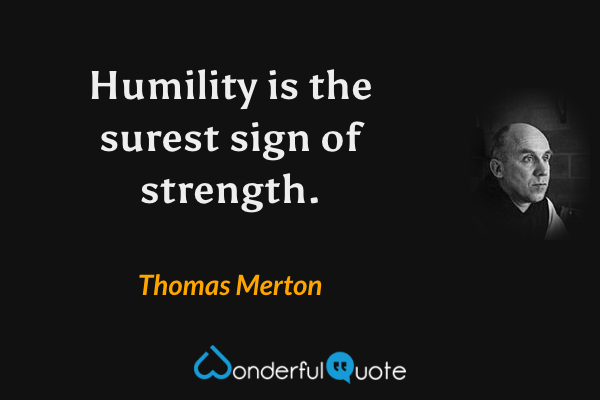
Humility is the surest sign of strength.
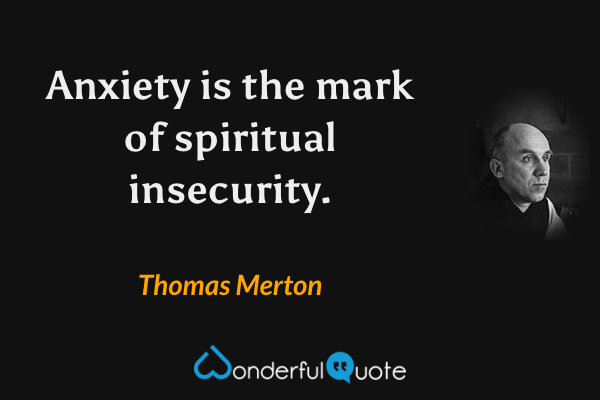
Anxiety is the mark of spiritual insecurity.
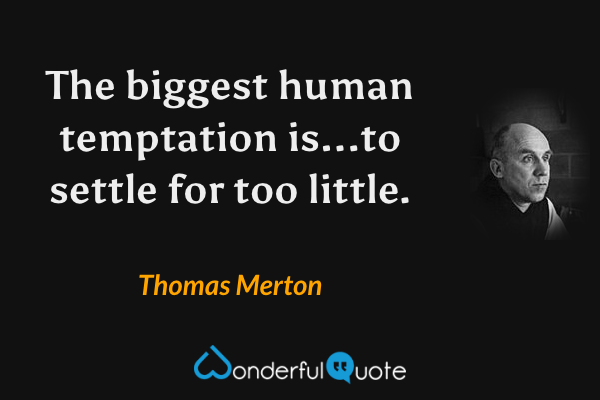
The biggest human temptation is...to settle for too little.
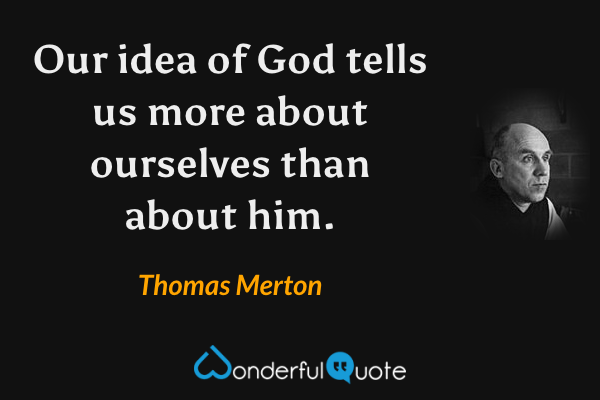
Our idea of God tells us more about ourselves than about him.
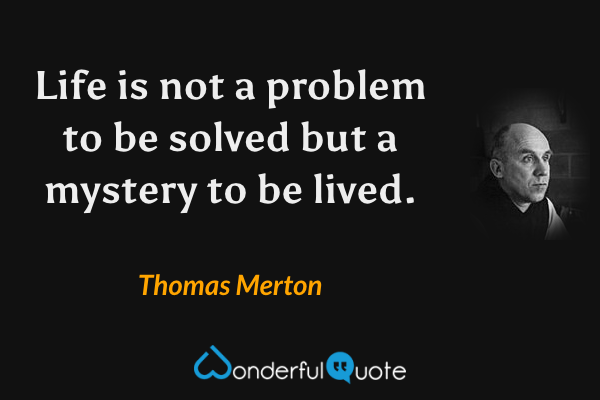
Life is not a problem to be solved but a mystery to be lived.
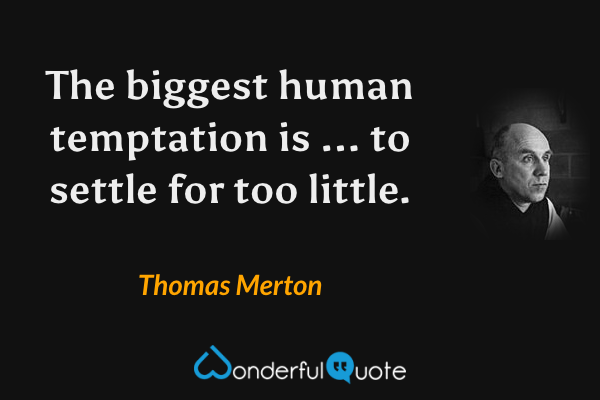
The biggest human temptation is ... to settle for too little.
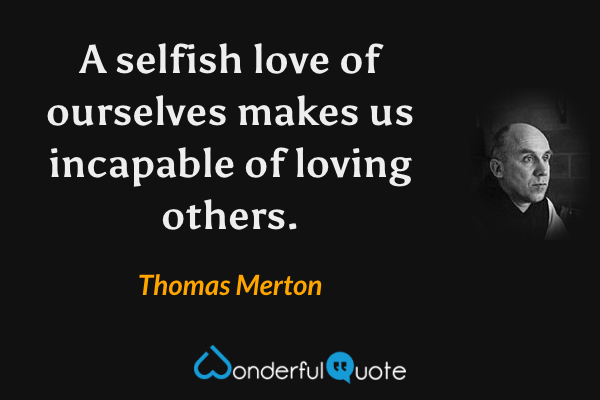
A selfish love of ourselves makes us incapable of loving others.
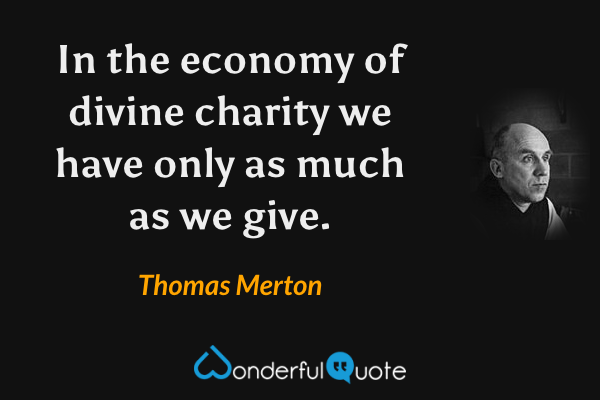
In the economy of divine charity we have only as much as we give.
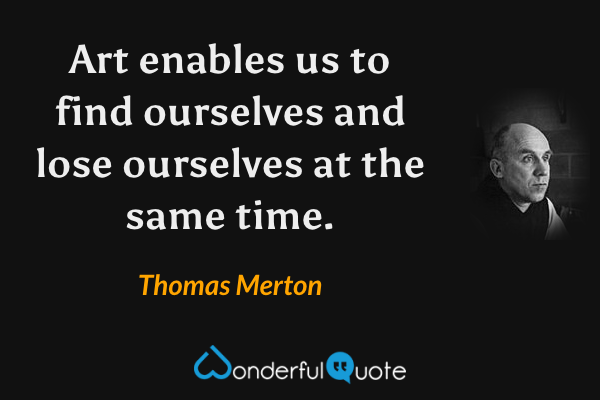
Art enables us to find ourselves and lose ourselves at the same time.
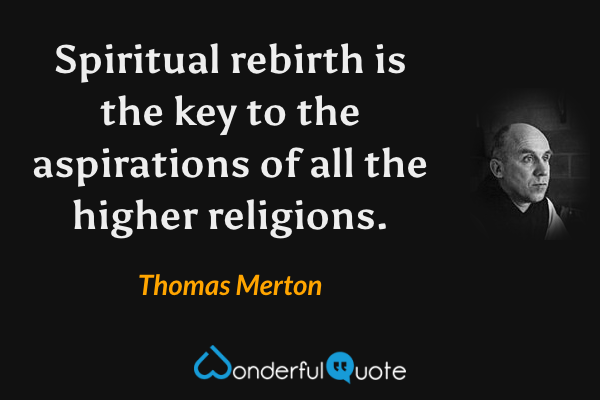
Spiritual rebirth is the key to the aspirations of all the higher religions.
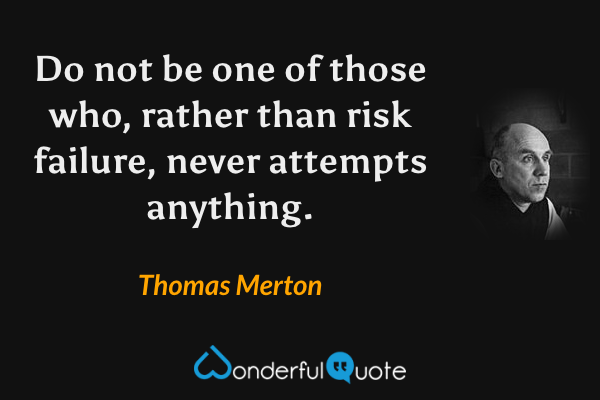
Do not be one of those who, rather than risk failure, never attempts anything.
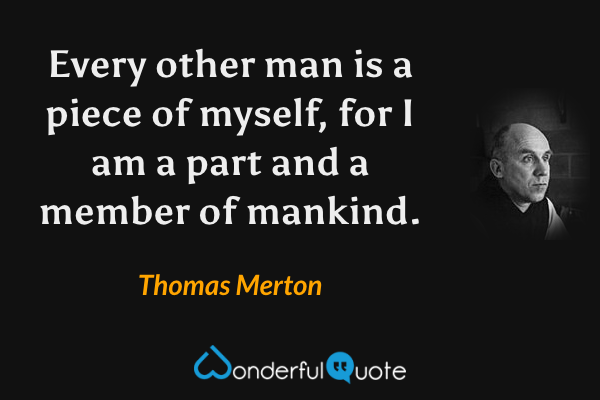
Every other man is a piece of myself, for I am a part and a member of mankind.
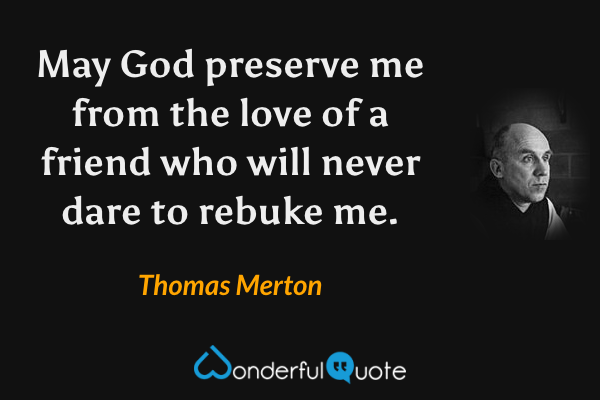
May God preserve me from the love of a friend who will never dare to rebuke me.
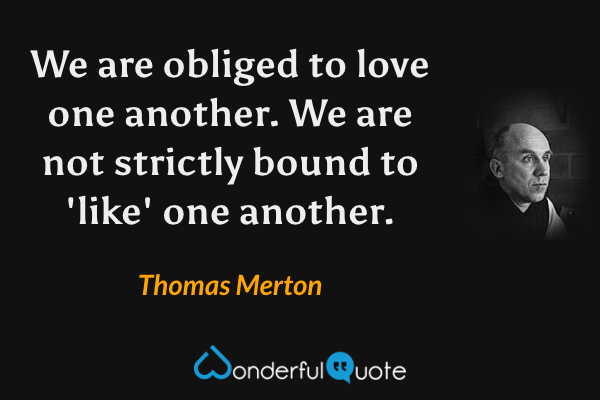
We are obliged to love one another. We are not strictly bound to 'like' one another.
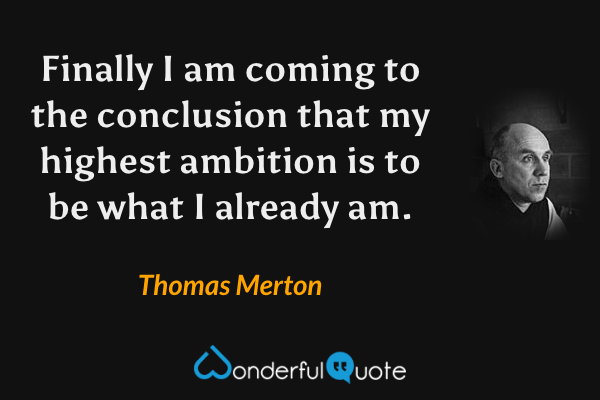
Finally I am coming to the conclusion that my highest ambition is to be what I already am.
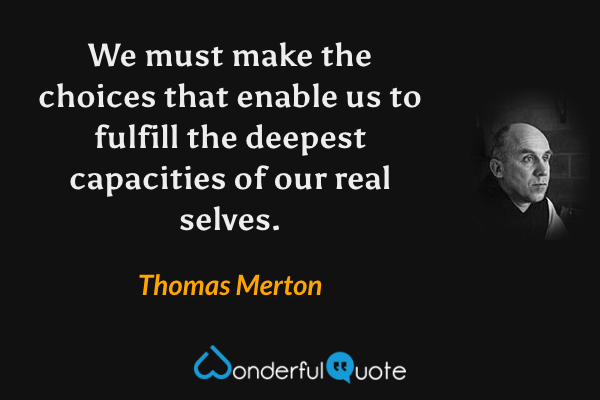
We must make the choices that enable us to fulfill the deepest capacities of our real selves.
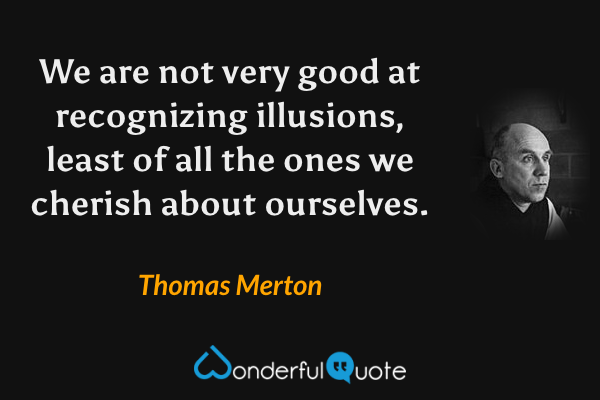
We are not very good at recognizing illusions, least of all the ones we cherish about ourselves.
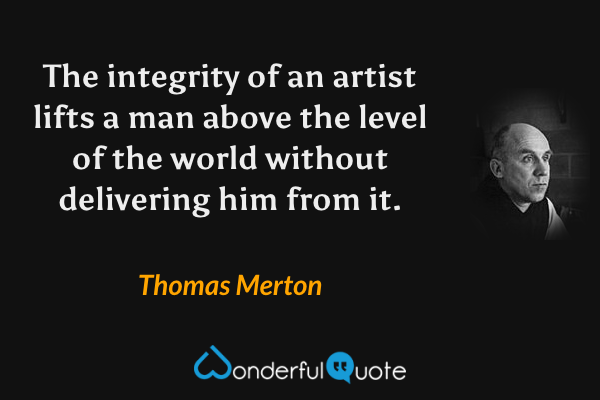
The integrity of an artist lifts a man above the level of the world without delivering him from it.

Be good, keep your feet dry, your eyes open, your heart at peace and your soul in the joy of Christ.
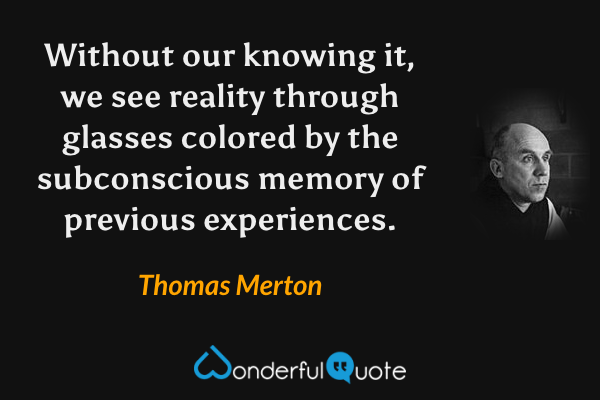
Without our knowing it, we see reality through glasses colored by the subconscious memory of previous experiences.
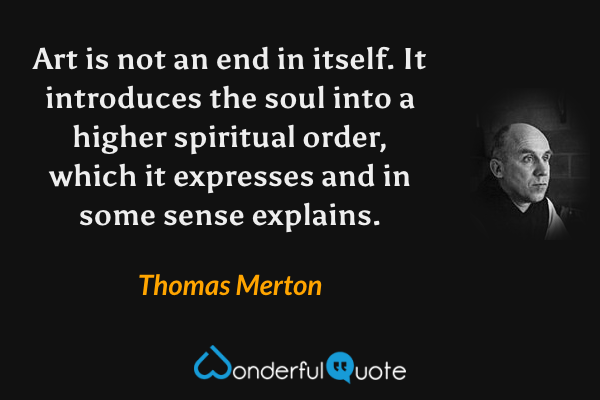
Art is not an end in itself. It introduces the soul into a higher spiritual order, which it expresses and in some sense explains.
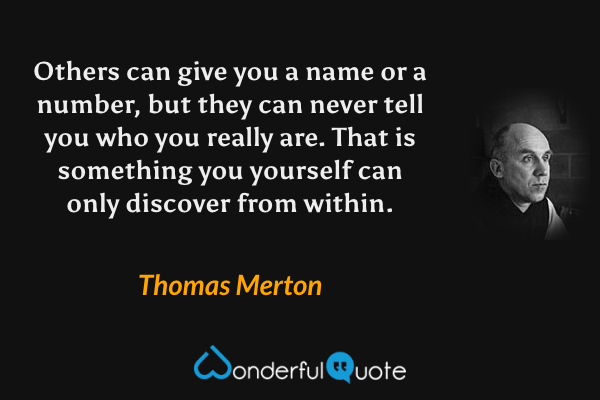
Others can give you a name or a number, but they can never tell you who you really are. That is something you yourself can only discover from within.
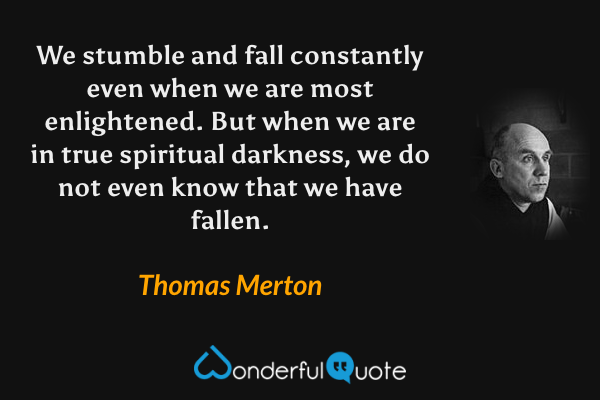
We stumble and fall constantly even when we are most enlightened. But when we are in true spiritual darkness, we do not even know that we have fallen.
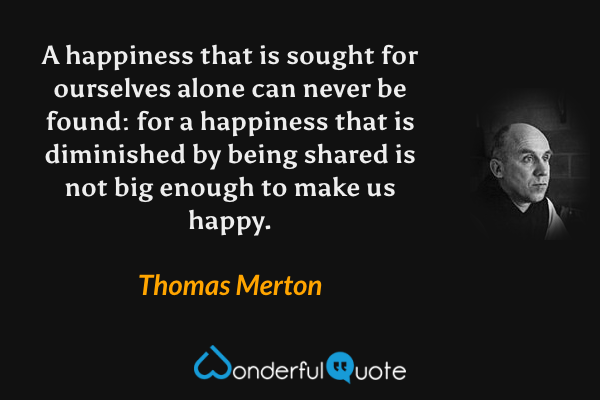
A happiness that is sought for ourselves alone can never be found: for a happiness that is diminished by being shared is not big enough to make us happy.
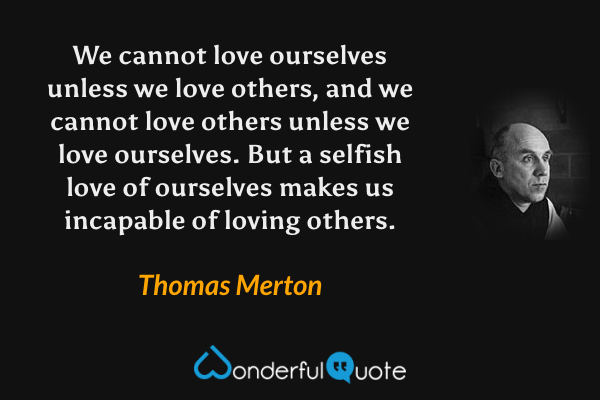
We cannot love ourselves unless we love others, and we cannot love others unless we love ourselves. But a selfish love of ourselves makes us incapable of loving others.
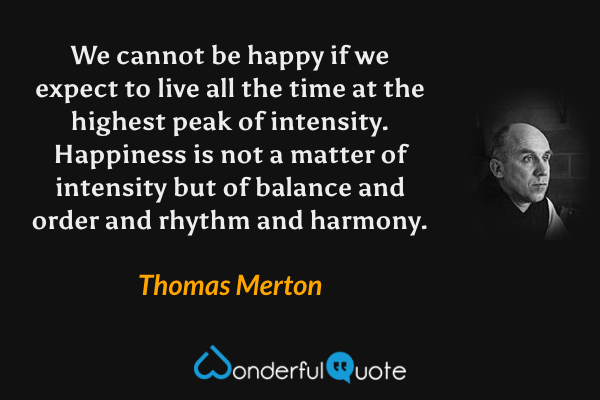
We cannot be happy if we expect to live all the time at the highest peak of intensity. Happiness is not a matter of intensity but of balance and order and rhythm and harmony.
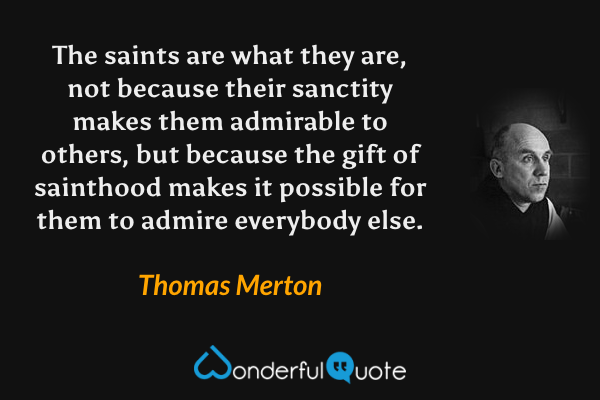
The saints are what they are, not because their sanctity makes them admirable to others, but because the gift of sainthood makes it possible for them to admire everybody else.
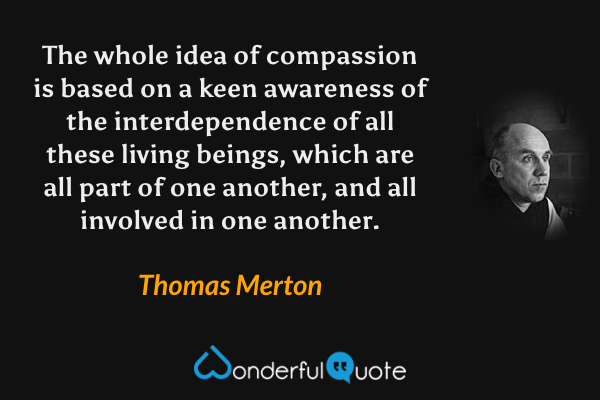
The whole idea of compassion is based on a keen awareness of the interdependence of all these living beings, which are all part of one another, and all involved in one another.
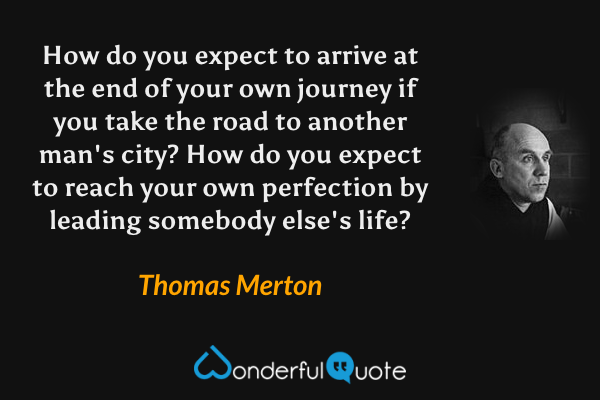
How do you expect to arrive at the end of your own journey if you take the road to another man's city? How do you expect to reach your own perfection by leading somebody else's life?
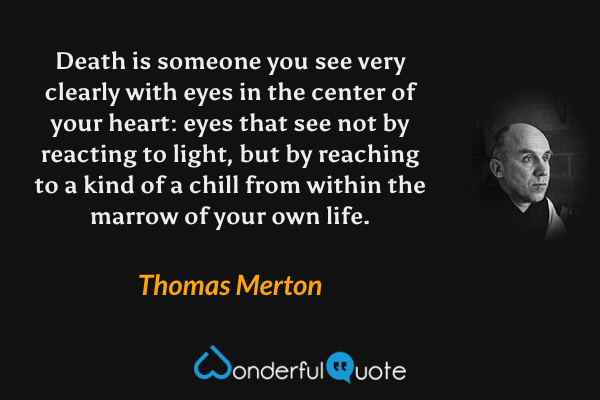
Death is someone you see very clearly with eyes in the center of your heart: eyes that see not by reacting to light, but by reaching to a kind of a chill from within the marrow of your own life.
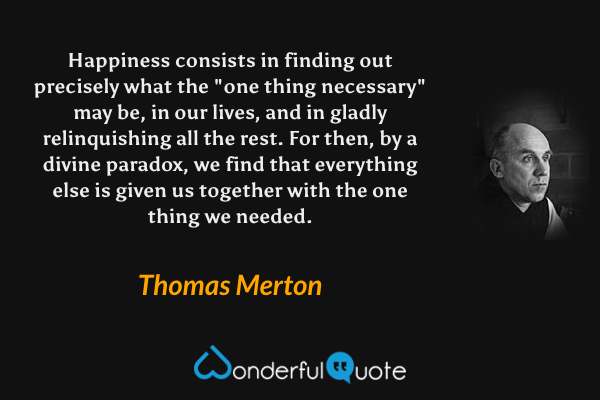
Happiness consists in finding out precisely what the "one thing necessary" may be, in our lives, and in gladly relinquishing all the rest. For then, by a divine paradox, we find that everything else is given us together with the one thing we needed.
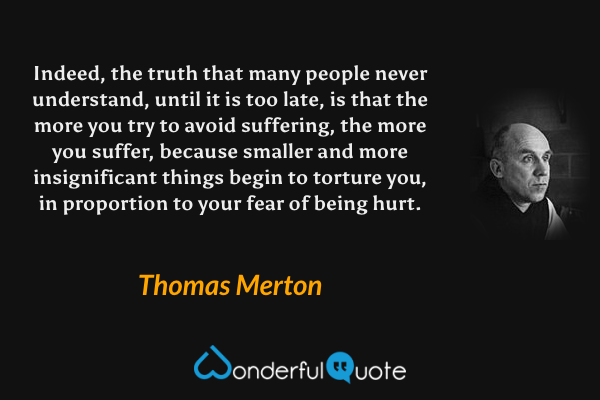
Indeed, the truth that many people never understand, until it is too late, is that the more you try to avoid suffering, the more you suffer, because smaller and more insignificant things begin to torture you, in proportion to your fear of being hurt.

By reading the scriptures I am so renewed that all nature seems renewed around me and with me. The sky seems to be a pure, a cooler blue, the trees a deeper green. The whole world is charged with the glory of God and I feel fire and music under my feet.
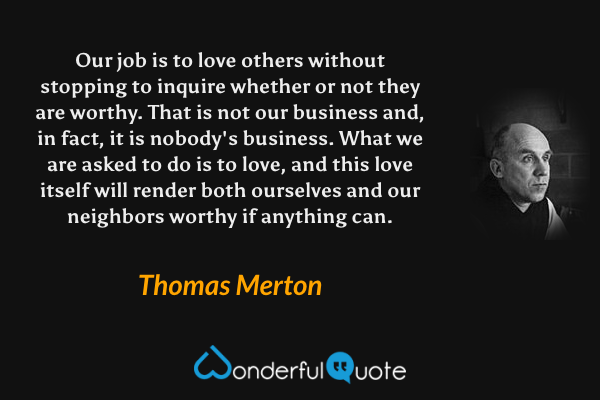
Our job is to love others without stopping to inquire whether or not they are worthy. That is not our business and, in fact, it is nobody's business. What we are asked to do is to love, and this love itself will render both ourselves and our neighbors worthy if anything can.

What attracts men to evil acts is not the evil in them but the good that is there, seen under a false aspect and with a distorted perspective. The good seen from that angle is only the bait in a trap. When you reach out to take it, the trap is sprung and you are left with disgust, boredom—and hatred.
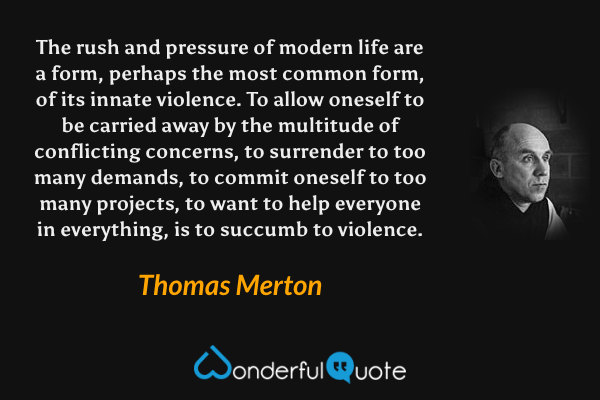
The rush and pressure of modern life are a form, perhaps the most common form, of its innate violence. To allow oneself to be carried away by the multitude of conflicting concerns, to surrender to too many demands, to commit oneself to too many projects, to want to help everyone in everything, is to succumb to violence.


